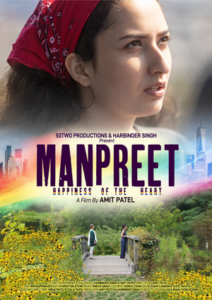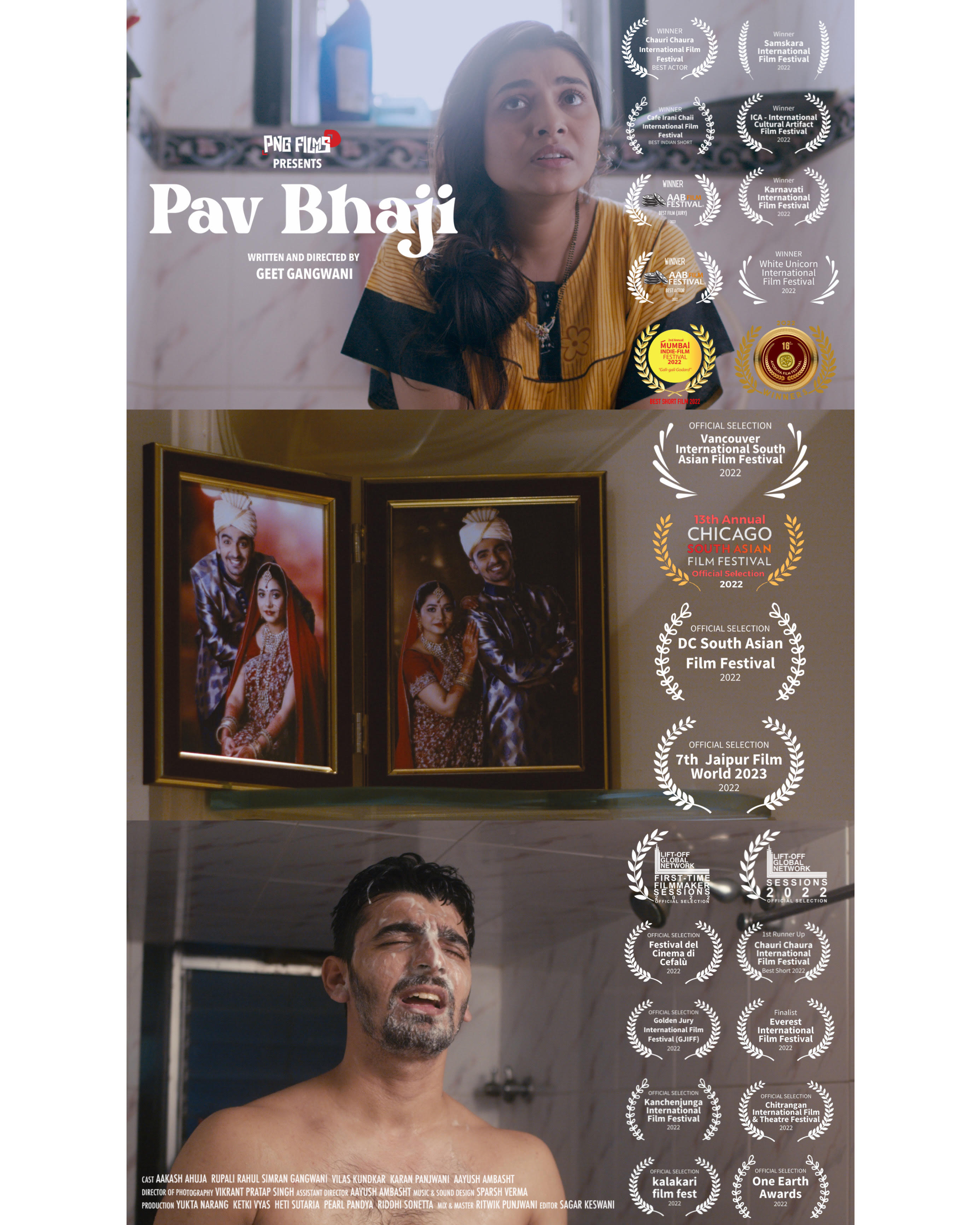
LISAFF 2022 Short Film Review “Manpreet”
WATCH THE TRAILER HERE
First, the Recap:
It’s the most commonly sought-after thing on the planet, or so it seems more often than not–true love. While we all have harbored the concept of soul mates being out there for us, to actually FIND this person, much less determine if it all WILL be as we’d envisioned, that is something else entirely. But, what if we have indeed found it–and it isn’t what others expect or would desire for us? Manpreet (Manasvi Sharma) is really a tomboy at heart, enjoying basketball and other forms of more masculine-centric things, but is fully confident as the woman she is. However, when her doting parents Manjeet and Amit (Kinjal Dave and Anand Ray) begin to try and set her up with a new boy named Karan (Varun Jindal), it opens the floodgates to debate, familial tensions, and a veiled secret.
Next, my Mind:
It feels like a story heard too many times in this contemporary age we reside within–the colliding of traditionalism vs. modernity–and all the kaleidoscopic range of issues arising from it that impact our equally, ever-diversifying scope of societal expectations that have always been placed on, or are still being imposed upon, others in the context of culture and family. This overall concept gets both understatedly and then conspicuously brought to light through the 17-minute short film effort from director/producer Amit Patel and writer (first time!)/producer/actor Harbinder Singh, which saw its WORLD PREMIERE Saturday November 19th as part of the inaugural 2022 Long Island South Asian Film Festival hosted by Jingo Media’s Jitin Hingorani, actor Harbinder Singh, and festival artistic director Ambica Dev. What then provides the film with an additional, deeply relevant punch to the primary gist mentioned above is another hotbed subject matter that has gained more and more attention in the South Asian realms in recent years to amazing effect and pertinence.
The narrative we’re delivered here finds us following an energetic young woman whose overall manner and choices point to a very non-traditional perspective on the world (not in order to intentionally cause waves, but more to showcase desired progress in the state of things currently) and the ripple effect this begins to have on her family, more so when specific circumstances escalate. Truthfully, I firmly believe it was a perfect mix of writing and visual execution that aids in allowing the story to unfold with the impact it ultimately does, causing us as the viewer to be lead down certain paths that begin to purposefully and slowly diverge so that by the time we reach the film’s third act, it becomes a cathartic, awareness-raising, and then even unexpectedly witty experience. While we might have seen elements depicted in great quantities lately when it comes to the other aforementioned, though only hinted-at, foundational theme we’re entreated to during this film, for this critic it doesn’t at all lessen the objective or grander messages it conveys. Plus, as alluded to above, the film’s finale has a fantastically awesome moment of jocularity that really befits all the events that have transpired up to that point. It’s quite hilarious. A perfect ending.
Analysis of what it is to be striving to maintain WHO you are, be accepted and understood as such, gender roles, arranged marriage vs. actual love, feeling contained within familial and cultural pressures, and simply wishing to be HAPPY and FREE to LIVE are also themes that are given time here to reveal themselves. It calls to mind how much of this, while translating to ANY of us in this world, very much speaks to the constantly shifting frames of mind and stances within an overall South Asian community that still confronts a lot of long-established, conventional, and dare I say somewhat stubbornly unchanging viewpoints and deeply ingrained, entrenched traditional notions being supplanted by modern thinking, decisions, and mindsets, especially amongst the younger generations. Mind you, this isn’t at ALL to disavow any of it in itself, as there is more than something to be said for being rooted in what you’ve been taught and founded on, but I think it’s also a wake-up call that even if we don’t WANT it to, this world and society IS changing with the times, whether we wish it or not.
Sharma truly puts forth the kind of uncomplicated, beautifully apropos performance that a film and character like this requires, meaning totally believable, relatable, unfeigned, and impassioned without it feeling forced, through her title role as Manpreet, a strongly independent-minded young woman who enjoys more of what many would equate as “male-oriented” than what might be perceived as anticipated from a South Asian girl. It is precisely this attitude that causes Manpreet to get into conflicts with her rigidly traditional mother and slightly more open father when they attempt to set her up with a young man they’re trying to match her with. What occurs from this point forward will define not only Manpreet’s own sense of worth, desire for love, and identity, but also that of her family and their whole way of thinking about and supporting one another. Again, it’s a tensely dramatic aura with intermixed moments of humor that carry the film, and Sharma’s well-executed performance keeps us engaged throughout.
Primary supporting turns are many, first arriving through Harbinder Singh‘s quietly but impactfully affecting turn as Manpreet’s uncle Bikram, who plays an integral and unwaveringly supportive part in her coming to terms with everything that’s happening and remaining confident in who she is. Dave and Ray astutely showcase the dichotomy of strict vs. more tolerant approaches to their daughter’s future and decisions as Manjeet and Amit who only wish the best for their child, but still within what they feel is correct parameters. Simran Buddhadev also shines with purposeful softness and heart as Manpreet’s best friend Sunita who may also not be the traditional girl everyone else sees. Varun Jindal is Karan, the young man Manpreet’s parents wish to set her up with. Lokesh Jindal and Payal Jindal play Karan’s parents Mr. and Mrs. Sodhi. Additional appearances are made by Vandana Walia, Neha Bhansali (just a marvelous cameo!!), Amit Patel, Salil Patel, Naineet Gawri, and Namratha Gawri.
So, in total, “Manpreet” is a statement of our times in its setting, mentality, themes, and substance that reflects just how imperative the need to adapt to pronounced fluctuations in personal, national, and cultural lifestyles we’re encountering is, as it should NOT be taken in as a slam against still-valued customs as much as a call to allow them to likewise transform and morph to fit into it, ideally to celebrate both then and now.
As always, this is all for your consideration and comment. Until next time, thank you for reading!



